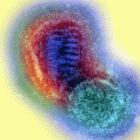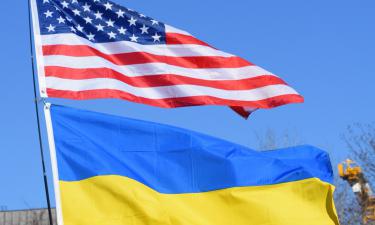China to give WHO bird flu samples
China has agreed to give the World Health Organization samples from bird flu infected animals after complaints that Beijing was hampering vaccine research by withholding them, WHO officials said Wednesday. The agency expects to receive about 20 virus samples within a few weeks, Dr. Julie Hall, an official of the WHO office in Beijing , said at a news conference.

Experts say such samples are needed to develop diagnostic tools and vaccines, and they have criticized China 's Agriculture Ministry for refusing since 2004 to release them to foreign scientists. China 's Health Ministry regularly provides samples from human cases of bird flu.
Officials have been accused of withholding animal samples to boost the status of Chinese scientists and increase the chances of them developing a lucrative vaccine before their foreign rivals. China and the WHO reached an agreement after working out "intellectual property rights and issues such as commercial rights," Hall said. She didn't give any details.
Worldwide, 184 human cases of bird flu have been confirmed, including 103 deaths, according to the WHO. The virus has killed or prompted governments to destroy more than 140 million birds since late 2003. Health officials fear the virus could evolve into a version that could easily be transmitted between people, potentially triggering a global pandemic. So far, there has been no evidence of such a mutation.
China 's flu strain differs from the one affecting Thailand and Vietnam and a vaccine to combat the Vietnamese version in 2003 may not work against the Chinese strain, according to Hall. Any work done with China 's viruses will have to credit the lab that supplied samples, and WHO has promised to help China negotiate terms of any commercial gain from them, she said.
"We hope that this is now the start ... of regular sharing that doesn't involve the degree of negotiations that we've had," she said. Apart from commercial concerns, "emotional academic pride issues" prompted Chinese scientists to withhold virus samples that they isolated and grew in labs, Hall said.
"I think these issues of pride and academic recognition are very important," Hall said. The samples will go to a WHO-affiliated lab in either Japan , Hong Kong , Australia or Britain , Hall said. Scientists will inject them into animals possibly ferrets, whose immune response to viruses is similar to that of humans to produce antibodies that can be used to create test kits and vaccines, she said.
" China understands that their viruses, that their information is important to developing a pandemic vaccine, to developing diagnostics," Hall said. Also Wednesday, the WHO regional director for Asia , Dr. Shigeru Omi, said China has to improve its surveillance of animals for possible bird flu outbreaks.
None of China 's 15 human cases of bird flu occurred in areas where authorities had warning of possible infection due to outbreaks detected in poultry, Omi said. China needs to "strengthen animal surveillance," he said. Hall said China has to do more to warn its public about the danger to people who are in close contact with sick birds.
"We know that the majority of cases that have occurred in China so far have occurred as a result of close contact, people defeathering and taking the guts out of what were sick chickens," Hall said.
Villagers have been reluctant to report sick chickens and other poultry for fear of losing sources of food and income. Farm families have especially close contact with chickens because poultry can't survive outdoors in winter cold and often are kept indoors under beds or near the hearth, Hall said, reports the AP.
N.U.
Subscribe to Pravda.Ru Telegram channel, Facebook, RSS!




